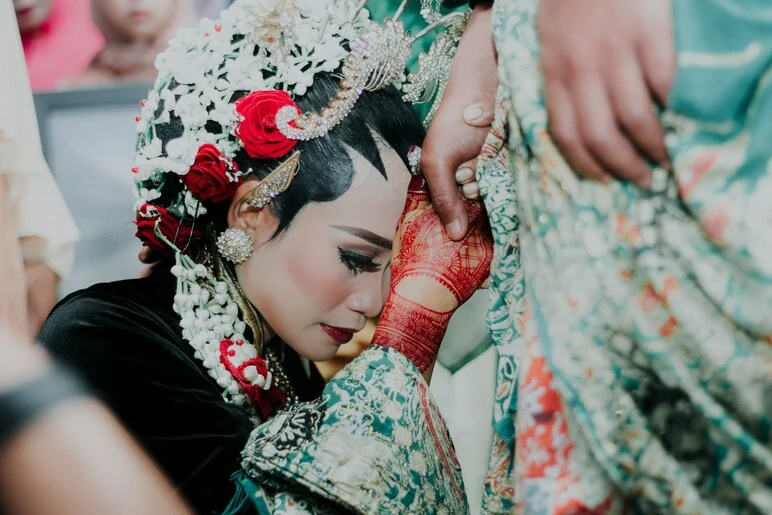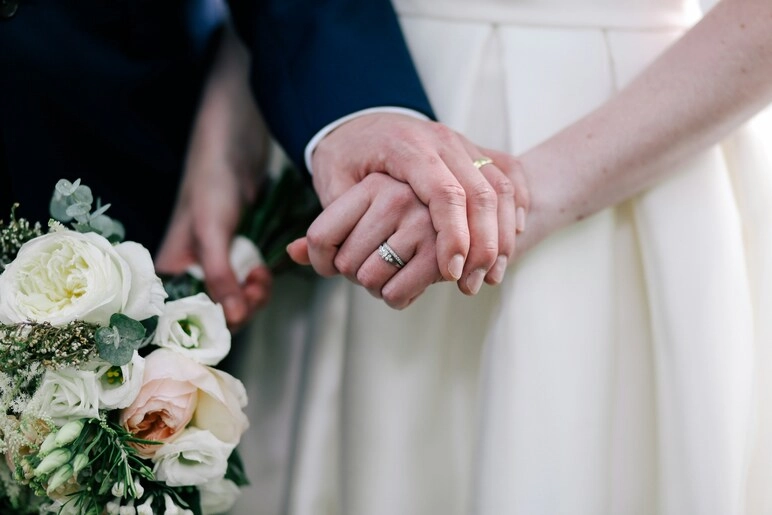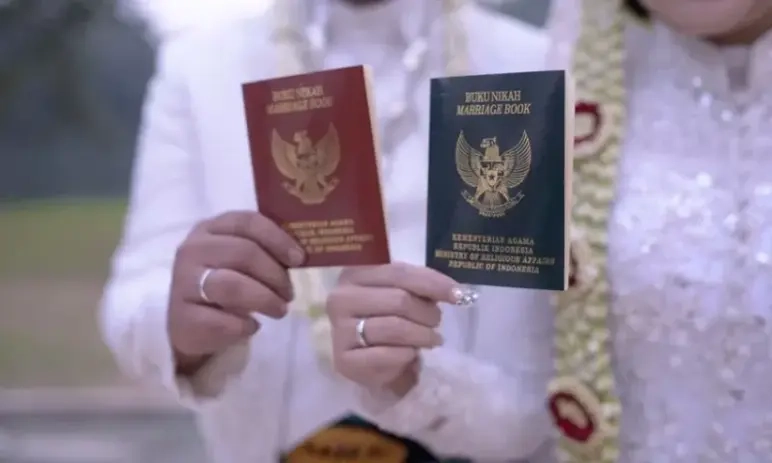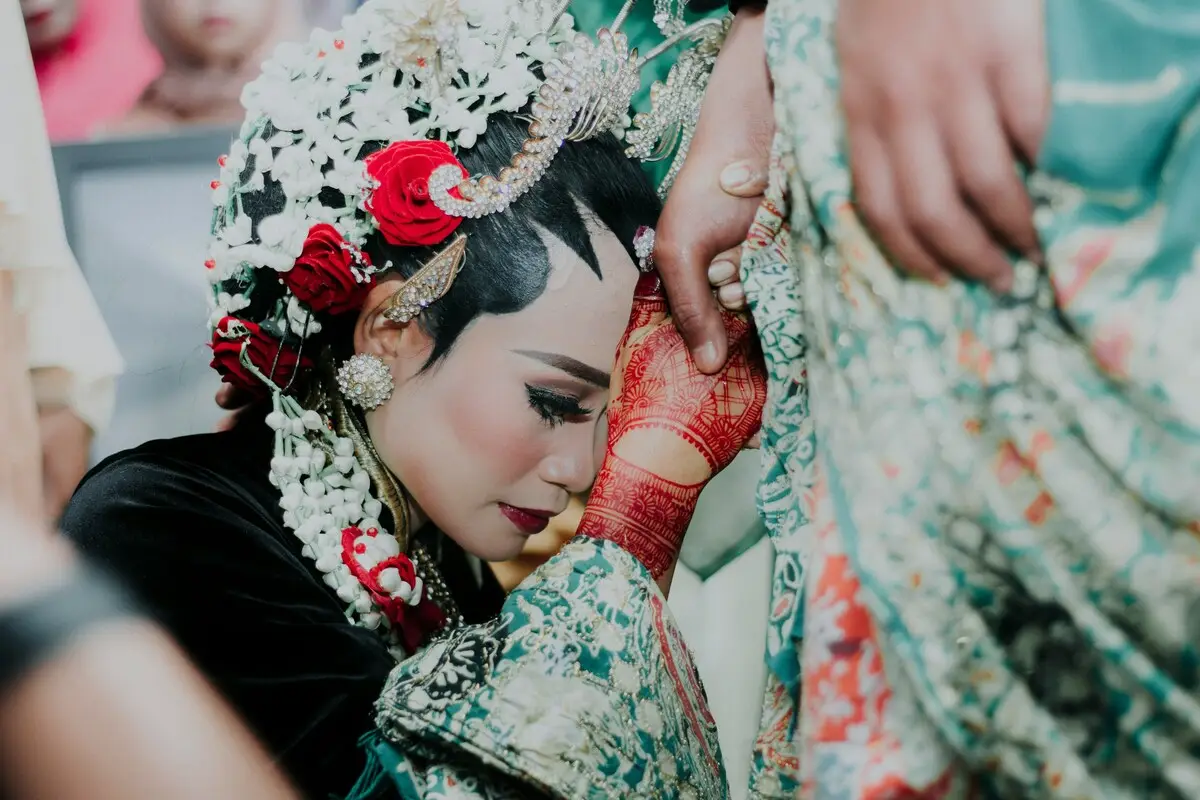
Interracial couples have always been a familiar chapter in Indonesia’s modern love story. As the days unfold, mixed marriages increase, made possible by globalisation, international travel, and the digital age of dating.
More Indonesians are meeting partners from abroad through study, work, or chance encounters under tropical skies. Add to that the growing expat communities and the country’s undeniable charm, and it's no surprise that love is crossing borders more often.
Are you one of those with hearts fluttering, bouquets blooming, and romantic plans starting to take shape because Cupid’s arrow has struck you across borders?
Marrying a foreign national in Indonesia is very much a love story—with a legal subplot.
Your thought of tying the knot with someone of a different nationality in Indonesia means a bureaucratic treasure hunt awaits. Prepare yourself not just for the vows and gamelans—but also a well-choreographed dance with bureaucracy.
So, is it complicated? A bit. Is it worth it? Absolutely.
Mixed-nationality marriages in Indonesia are entirely possible—with patience, paperwork, and a sense of humour. Think of it as a uniquely Indonesian rite of passage into your global love story. With the right guidance and a solid checklist, what starts as a bureaucratic tango can end in a joyful, internationally recognised "I do”.
Here's your smart, stylish, and stress-reducing guide to everything you need to know.
Chapter One: A Beautiful Puzzle Worth Solving
While exact figures of mixed marriages in Indonesia are limited, the trend is unmistakable, especially in cosmopolitan hotspots such as Bali and Jakarta. Recent reports show that approximately 33 per cent of marriages in Jakarta are ethnically mixed, compared to under 2 per cent in more traditional provinces like Central Java.
As for interfaith marriages, they’re still relatively rare. According to Indonesia’s 2010 Census, only 0.5 per cent of married couples had different religions—a testament to how deeply faith shapes marriage laws and social expectations here.
Urban Indonesians tend to be more open-minded. Societal attitudes toward mixed and interfaith marriages, however, can vary. Religion plays a particularly significant role, especially if one party is Muslim—since Islamic law influences many aspects of marital recognition.
Still, love has a way of rewriting the rules. Many couples find that mutual respect, clear communication, and a good support network can go a long way in bridging cultural gaps.
Chapter Two: The Legal Groundwork

According to Law No. 1 of the 1974 Marriage Law, a marriage is only legal in Indonesia if it is:
- Conducted according to the couple’s religious or belief system, and
- Officially registered with the appropriate civil or religious authority.
This legal framework requires couples to comply with both Indonesian regulations and the laws of the foreign spouse’s home country. It’s a multi-step process that’s less of a sprint and more of a scenic hike—with lots of stamps along the way. Expect paperwork, signatures, and a good dose of patience.
The journey begins at the most local level—the Neighbourhood Chief (RT/RW)—then make your way through the Sub-District Office (Kelurahan), the District Office (Kecamatan), and finally, the Religious Affairs Office (KUA) (for Muslim marriages) or the Civil Registry Office (for non-Muslim marriages).
While much information is available online, always double-check with your partner’s embassy. Requirements vary widely, and embassies often demand certified translations and legalised documents.
Chapter Three: The Paper Chase
Each partner needs to prepare documents and present them with all the grace and precision of a high-stakes scavenger hunt!
For foreign nationals:
- Certificate of No Impediment (CNI) from your embassy
- Copy of Passport
- Copy of Birth Certificate
- Copy of ID (if applicable)
- Domicile Letter from the local Sub-District
- Divorce Papers, if previously married
- Four formal photos (blue background, sizes 2×3 cm and 4×6 cm)
- Religious conversion certificate, if applicable (Surat Mualaf)
For Indonesian citizens:
- Statement of No Impediment, signed by the RT/RW
- N1, N2, N4 Forms from local authorities
- N3 Form (for Islamic ceremonies)
- Marriage approval letter signed by the couple
- Copy of KTP (ID), Birth Certificate, Family Registry Card (KK)
- Pre-Nuptial Agreement, if applicable
- ID of two witnesses
- Four formal photos (blue background, same sizes)
Chapter Four: Saying “I Do” Overseas

Prefer a wedding under the Tuscan sun or in the snowy Alps? That’s perfectly possible—but don’t forget the legal housekeeping:
- Register your marriage with the local civil authorities where you marry.
- Report the marriage to the Indonesian Embassy in that country.
Upon returning to Indonesia, you must report the marriage within 30 days to the local Civil Registry Office—or risk penalties.
Don’t forget: If your marriage occurred overseas, you’ll need a sworn translation of your certificate and official documentation from the Indonesian Embassy before registering it locally.
Chapter Five: Different Religions
Here’s the truth bomb: Indonesia does not legally recognise interfaith marriages unless one partner converts. If religion poses a legal obstacle, some couples opt to marry abroad. It’s often simpler for interfaith couples, but don’t forget to register the marriage with both the Indonesian embassy abroad and the local Civil Registry when you return.
Once married overseas, make sure to prepare:
- Translated and legalised marriage certificate
- A statement letter from the Indonesian Embassy
- Copies of both partners' birth certificates, passports, KTP, and KK
- Three formal couple’s photos (red background, 4×6 cm)
Chapter Six: Don’t Forget the Paperwork After the Vows

Whether you got married in Bali or Barcelona, don’t forget to register your marriage at Indonesia’s Civil Registry within 60 days of your wedding.
The “Buku Nikah” (marriage book) from the Religious Affairs Office may not be recognised abroad, thus, civil registration is essential—especially if you plan to relocate or apply for visas.
Depending on your spouse’s country, you may also need to legalise the marriage documents at:
- Ministry of Foreign Affairs
- Ministry of Religious Affairs
- Ministry of Law and Human Rights
Chapter Seven: Life After Love (and Legalities)
Congratulations! Once the marriage is official, a new chapter of legal privileges begins, thanks to:
- Law No. 1 of 1974 (Marriage Law)
- Law No. 12 of 2006 (Citizenship)
- Law No. 6 of 2011 (Immigration)
Your foreign spouse can apply for:
- Spouse-sponsored Stay Permit (KITAS)
- Permanent Residency (KITAP) after two years of marriage
- Indonesian Citizenship, or vice versa
Chapter Eight: The Pre-Nup Haze
This part gets practical (and a bit unromantic, but very necessary)... If you want your Indonesian spouse to be able to buy freehold property, you must sign a pre-nuptial agreement separating your assets before marriage.
If you missed the pre-nup train, not to worry—talk to a notary about crafting a post-nuptial agreement. Without this, Indonesian citizens married to foreigners cannot legally own freehold property (hak milik), and foreign spouses are only entitled to right-to-use (hak pakai) titles.
Here’s to Love—and a Little Legal Finesse!
Prepare for challenges, both legal and cultural. Before the wedding bells chime, arm yourself with information, consult experts, and connect with reputable organisations. Your future selves will thank you.
Happy planning, and may your love be as strong as your document folder is thick.




 Mirella Pandjaitan
Mirella Pandjaitan
 May 26, 2025
May 26, 2025